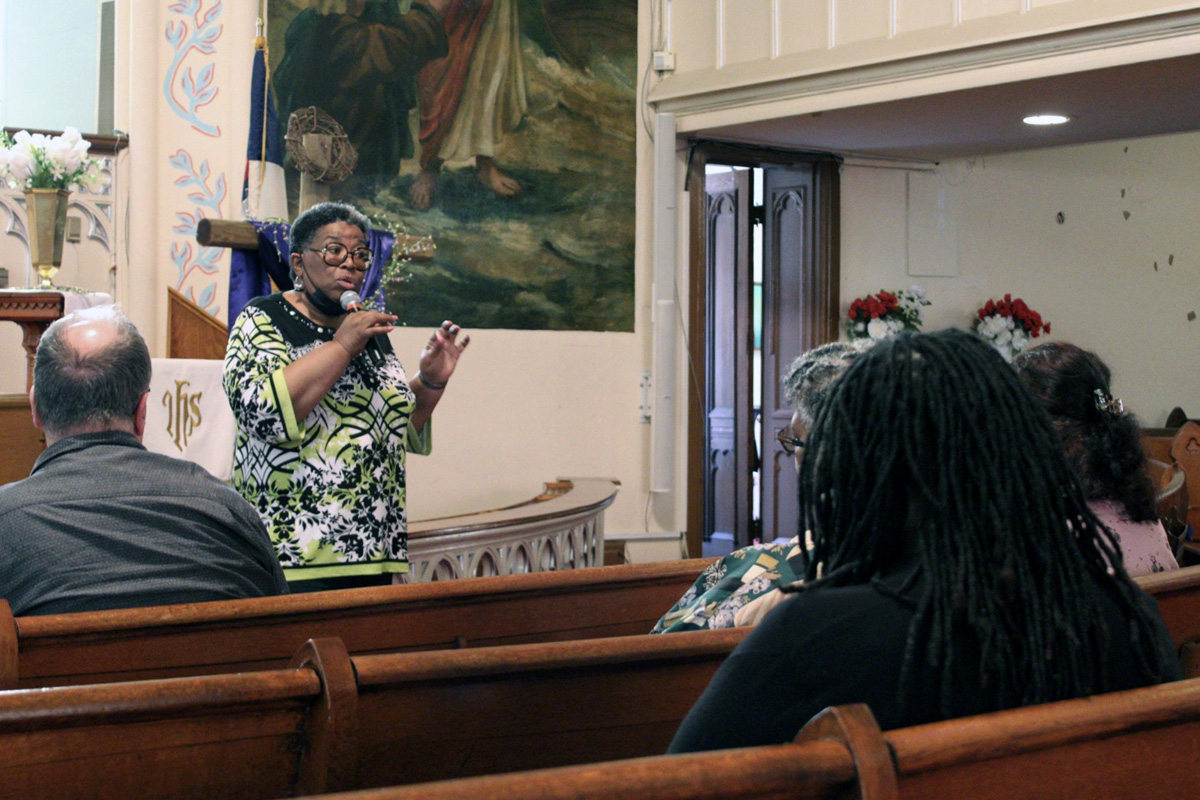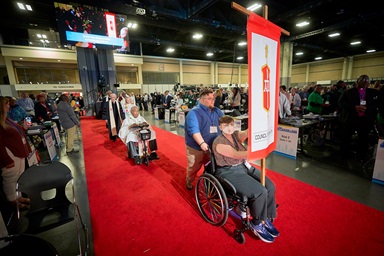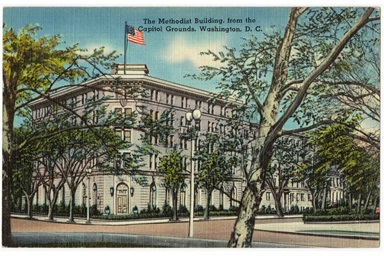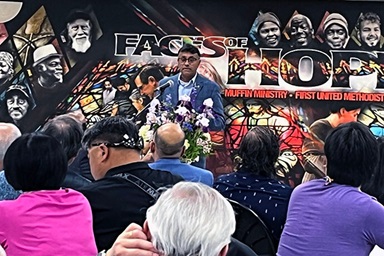Key Points
- The Rev. Bonnie McCubbin, a pastor and archivist in the Baltimore-Washington Conference, led a Social Justice Pilgrimage on May 6.
- Sixteen pilgrims traversed the nation’s capital and Baltimore taking in United Methodist churches, cemeteries and The United Methodist Building near the U.S. Supreme Court. Discussions included a dialogue about the role of the church in politics.
There was a simple takeaway from a whirlwind “pilgrimage” to historic United Methodist sites in the nation’s capital and Baltimore: The lessons of history are useless unless applied to our approach to the future.
It was a long but rewarding day for 16 pilgrims who traveled about 100 miles on May 6 to take in churches both grand and humble, two cemeteries and The United Methodist Building across the street from the United States Supreme Court Building.
The group got to contrast The United Methodist Building in a tony part of Washington with a tiny, dank, brick building at Mt. Zion Cemetery nearby where escaped slaves hid as they tried to make their way to freedom along the underground railroad. Its intended use was to keep dead bodies cool.
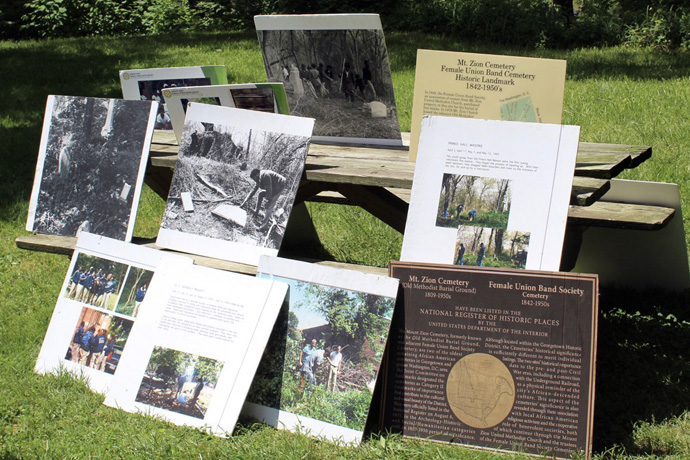
The day was a pilgrimage, not a tour, said the Rev. Bonnie McCubbin, who put together the event.
A tour is about seeing sights, having fun and getting souvenirs, whether they be photos for social media or dust-collecting knick-knacks.
“Pilgrimage for me is an opportunity for us to get out of our own selves and the ordinary routine of every day,” said McCubbin, director of museums and pilgrimage for the Baltimore-Washington Conference and pastor of Old Otterbein United Methodist Church in Baltimore.
“In our case, a religious pilgrimage allows God to speak into our lives and gives us the opportunity to ... allow the experience to shape you instead of you shaping the environment around you.
“Pilgrimage is not about a destination. It's about the journey itself,” she said.
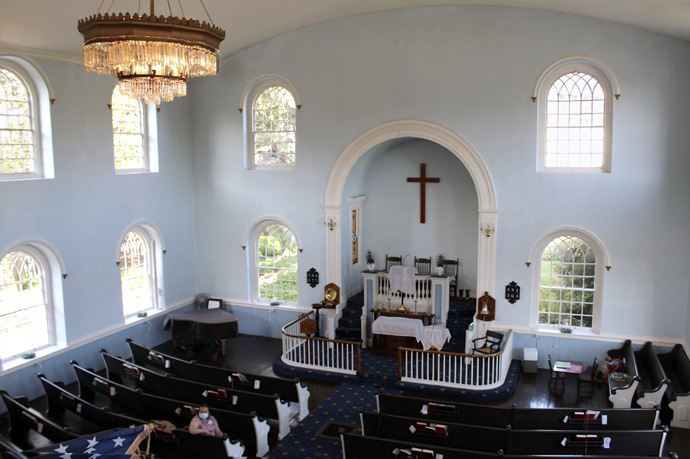
Colleen Cates, a member of the board of United Women of Faith who participated, said everyone, in particular African Americans, should experience such a pilgrimage.
“This is truly a part of our history,” Cates said. “We've come a long way, even though we still have a ways to go.”
Sarah Ford, a leader at Sharp Street Memorial United Methodist Church in west Baltimore, was passionate as she addressed the visitors inside her church. The once bustling “Mother Church of African American Methodism” now hosts about 20 worshippers on Sundays.
“This is our home,” she told the pilgrims, who couldn’t help but notice the juxtaposition of the grand sanctuary and the bleak neighborhood where it sits.
“We aren’t giving it up for nobody,” Ford said. “Regardless of what you see around us, our thing here is we're going to influence the neighborhood.”
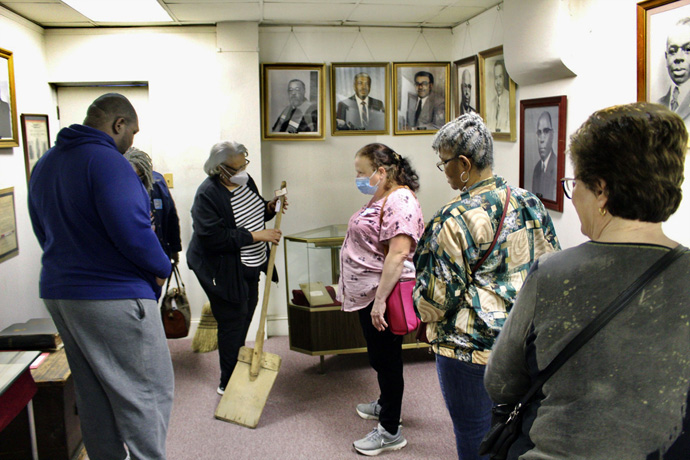
Sharp Street is a descendant of Baltimore’s first African American congregation, which traces its history back to 1787. Its magnificent building could use some (expensive) tender loving care, but that’s not what was foremost on Ford’s mind.
“We are working diligently about being intentionally in the community,” she said. “We do a soup kitchen (and) pop-up kitchens. … We're trying to get some social activities going and we can't wait to have a Sunday school.”
One of the thoughtful discussions of the day — about the church’s role in politics — took place at The United Methodist Building, which sits “at the foot of power of arguably the most powerful country in the world,” said John Hill, interim top executive of the United Methodist Board of Church and Society, which is housed there.
A sign in front of the building addressed lawmakers: “Congress: Choose Grace over Greed.”
“It strikes me as strange why our churches in the local venues are so opposed to us being in politics,” said Barb Julian, a member of Community: A United Methodist Church in Crofton, Maryland. She said the world needs people speaking “with a Christian heart” to political issues.
McCubbin said that “Jesus was definitely political.”
“He believed in fairness and justice,” she said. “He was serving the widows and children who people thought were disposable in society. … He was political as well, because of the sense of challenging the status quo. He was not interested in following all the rules and regulations.”
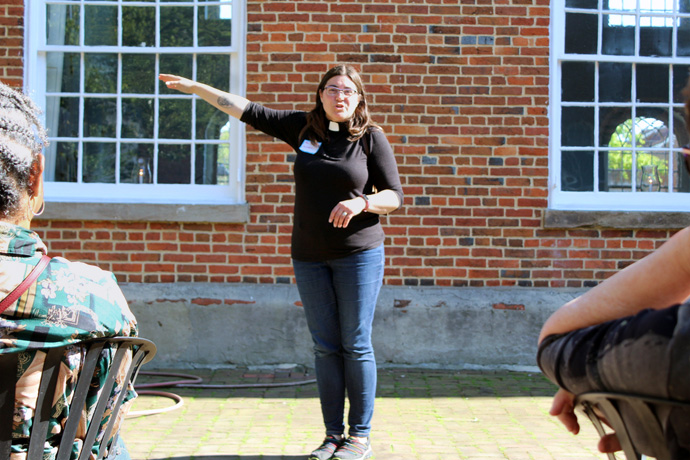
The Rev. Ryan Wiggins, a white pastor from Maryland who was part of the pilgrimage, said it’s easy for people who benefit from the political system to claim their faith has nothing to do with politics.
“They can be separate, because they are safe and comfortable,” Wiggins said during an interview as the group had lunch at Mt. Zion United Methodist Church in Washington. “But from John Wesley forward, there’s been a … relationship between society and politics, and the church has been a part of it.”
Racial issues were central to the event, which was billed as a Social Justice Pilgrimage.
“My passion is really on racial reconciliation,” McCubbin said. “I'm in a mixed-race marriage, and my research interest focuses on the integration of the denomination.”
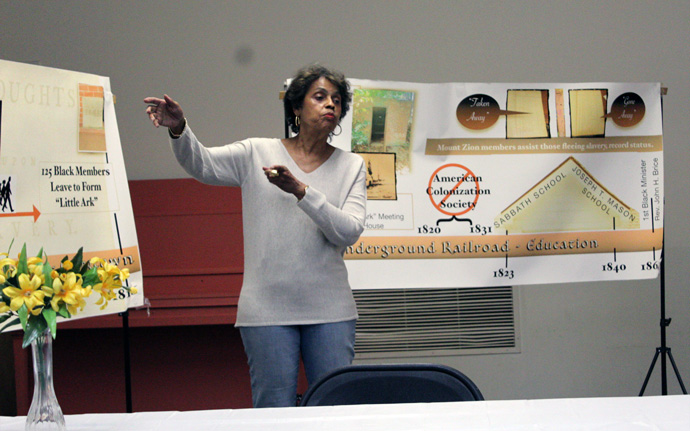
Keeping focus on racism and other important issues can be a challenge in a denomination such as The United Methodist Church, which is losing churches because of the primacy of one of those issues, the role of LGBTQ+ people in the church.
“It's like the history cannot be removed from our commitments to these movements,” said the Rev. Neal Christie, executive minister of connected engagement in the Baltimore-Washington Conference, who joined the group for part of the pilgrimage.
Subscribe to our
e-newsletter
There is always a contingent in church who prefer to mind their own business and focus on taking care of the internal affairs of the church, he said.
“Especially now, when churches are dealing with everything, right?” he said. “Whether we stay or we go, and what’s The United Methodist Church going to look like — fear over numbers.
“My opinion is that can all be a distraction from our commitments to the justice and mercy, compassion, solidarity and ministry that define who we are.”
Cates said “the church is a loving place, but at times, we’re not really showing the love that Jesus taught us.”
The Social Justice Pilgrimage will hopefully help keep the eyes of Methodists on the issues that matter, McCubbin said.
“I think that pilgrimage can be a transformational experience,” she said. “And then the real work begins when you get home. How do you put that into action?”
Patterson is a UM News reporter in Nashville, Tennessee. Contact him at 615-742-5470 or newsdesk@umcom.org. To read more United Methodist news, subscribe to the free Daily or Weekly Digests.
Like what you're reading? Support the ministry of UM News! Your support ensures the latest denominational news, dynamic stories and informative articles will continue to connect our global community. Make a tax-deductible donation at ResourceUMC.org/GiveUMCom.

